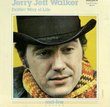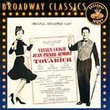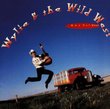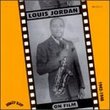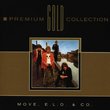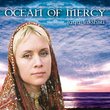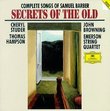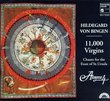| All Artists: Various Artists Title: Rain Dropping on the Banana Tree: An Anthology of Members Wishing: 0 Total Copies: 0 Label: Rounder Release Date: 5/12/2010 Genres: International Music, Special Interest Style: Far East & Asia Number of Discs: 1 SwapaCD Credits: 1 UPCs: 011661112520, 011661112544 |
Search - Various Artists :: Rain Dropping on the Banana Tree: An Anthology of
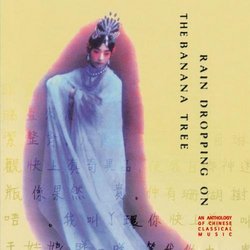 | Various Artists Rain Dropping on the Banana Tree: An Anthology of Genres: International Music, Special Interest
Recorded mostly in China itself between the years 1902 and 1930 these early Chinese classical pieces were cut for commercial release on 78 rpm records for audiences in China and beyond. Rain Dropping On The Banana Tree is ... more » |
Larger Image |
CD DetailsSynopsis
Product Description Recorded mostly in China itself between the years 1902 and 1930 these early Chinese classical pieces were cut for commercial release on 78 rpm records for audiences in China and beyond. Rain Dropping On The Banana Tree is a fascinating glimpse into an earlier era. Compiled and annotated by Dick Spottswood. Similar CDs
Similarly Requested CDs
|
CD ReviewsThe real thing 02/03/2004 (5 out of 5 stars) "This is a cd that contains music that was recorded from 1902 to 1930. It's Chinese music untouched by western influences. A wonderful album for those of us who truly love Chinese music. If you're not used to this type of music, first buy and listen to The Chinese Music Ensemble of New York's cd 'Beloved Chinese Songs'. That one is more similiar to Western type music. This one is very different. Play it a few times and you'll love it. Both cds are well worth owning." What I was looking for glamaFez | Kansas City, MO USA | 04/11/2009 (5 out of 5 stars) "I first became interested in this type of music when I saw the opium den scene in "The Mask Of Fu Manchu" (1932). I sought it out, and this is what I found. It just gets weirder and weirder. If you want to clear out a party, put this on. It is early 20th century Chinese music with no concession to Western tastes. Some of it is Cantonese opera, some of it is Buddhist, and some of it is just joyous noise. It is a great antidote to whatever music you are tired of at the moment." Excellent historical, musical, cultural document Elliot Knapp | Seattle, Washington United States | 12/31/2007 (5 out of 5 stars) "Rain Dropping from the Banana Tree is a collection of 24 short songs recorded in China and America by Westerner Fred Gaisberg. In essence, these songs are historical documents showing traditional Chinese folk music in its un-Westernized form, which makes for great and interesting listening. Most "traditional" Chinese music you can find these days can hardly be described so, since it's often played with traditionally Western instruments and orchestras, though it generally contains traditional Chinese melodies. If you're interested in hearing some Chinese folk music for what it is (or was), this is a great place to start.
Most of the music on this collection is played with 2-string violin, er-hu, qin qin, flute, percussion, and any number of vocalists. After a listen to any one of the tracks here you'll probably find how different Chinese music is from most traditional Western types of music, which may be shocking to Western ears. Once you get a handle on how Chinese melody works, it is very easy to see exactly what the melodic and rhythmic rules are in the Chinese idiom, and the music becomes a fresh and simultaneously ancient delight. I should also mention that some of the singing is considerably different (more nasally and harsher) than most Westerners are probably used to, which may take some effort to acquire a taste for. Also, the production values are obviously not up to modern standards--more like early Woody Guthrie recordings than, say, Bob Dylan in the 1960's. Regardless, the scratchy recordings lend an endearing folky quality to the music. For anyone who's looking for something of a more instrumental bent, be warned that this album is mostly comprised of folk songs with vocals. If you're more interested in instrumental Chinese traditional music, I'd recommend Eleven Centuries of Traditional Music of China, which consists mainly of zither and lute pieces that are similarly untouched by much Western influence." |

 Track Listings (24) - Disc #1
Track Listings (24) - Disc #1